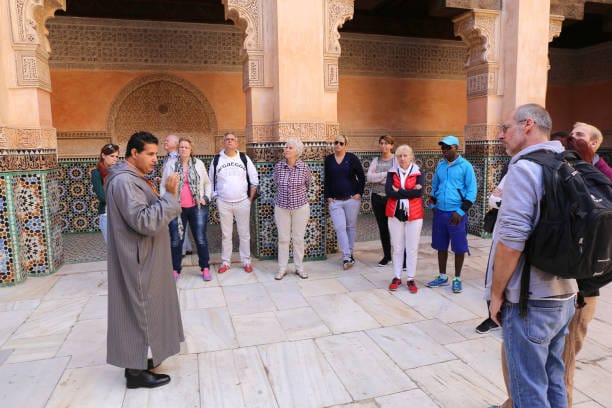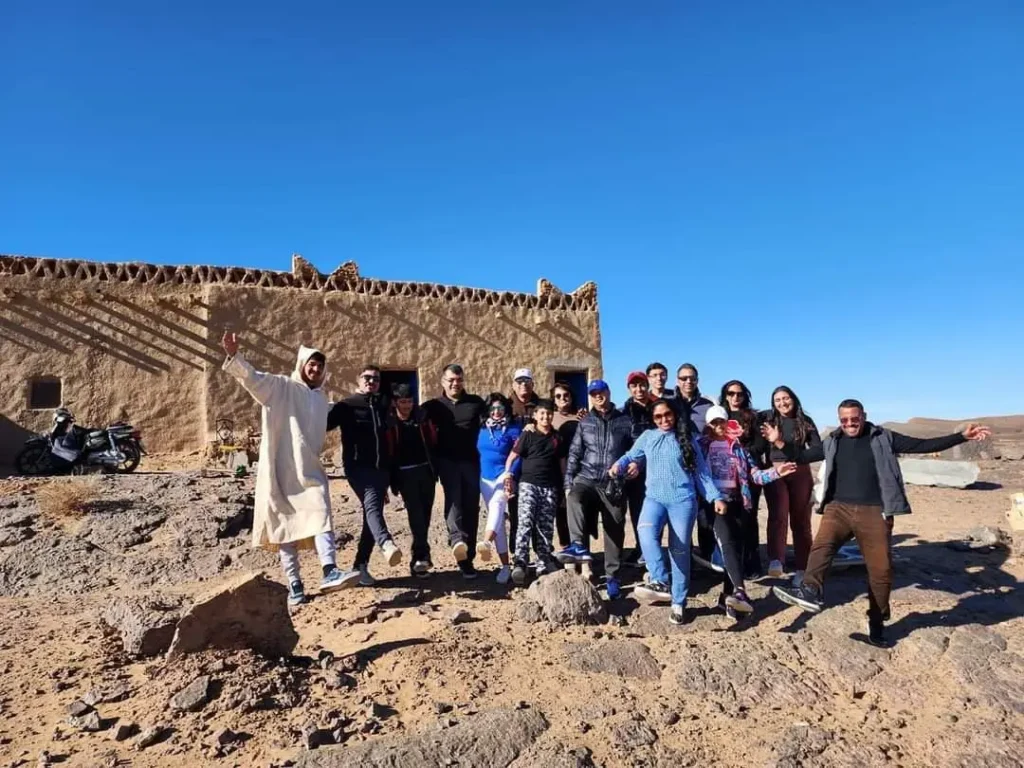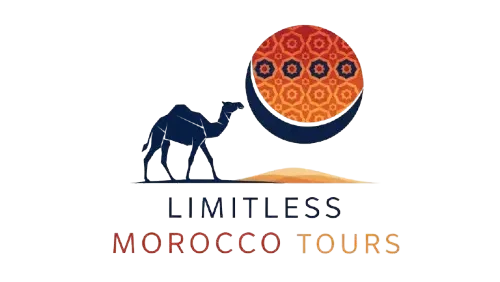Table of Contents
ToggleHow Much Should You Tip a Tour Guide in Morocco? (2025 Guide)
How much to tip in Morocco is one of the first questions many travelers ask when planning their trip. Tipping in Morocco can sometimes feel confusing, but knowing the basics will make your journey much smoother. Tour guides, drivers, and hospitality staff all play a big role in your experience, and a small tip is a great way to show appreciation. The amount usually depends on the length of the tour and the level of service, but there are simple guidelines that make it easy to decide.

How Much to Tip in Morocco: Why It Matters
In Morocco, wages in the tourism sector are often modest, and tips make up an important part of workers’ income. For many guides, drivers, and hospitality staff, tips are more than just money — they are a sign of respect and gratitude.
When you give a tip, you’re not only saying “thank you,” but also helping support families and communities. This is why even a small gesture is deeply appreciated.
Unlike some countries where tipping is automatic or included in the bill, Morocco is more flexible. There are no strict rules or percentages, but there are general guidelines that travelers can follow to avoid awkward situations.
General Guidelines: How Much to Tip in Morocco for Guides & Staff
1. Tour Guides
Your guide is often the heart of your Moroccan experience. A good guide doesn’t just show you places — they share stories, history, and culture that bring Morocco to life.
If your guide spends the whole day with you, it’s nice to offer a tip at the end.
For multi-day tours, tipping at the end of the trip is common.
If you feel your guide went the extra mile, a little more generosity is always appreciated.
2. Drivers
Drivers in Morocco often spend long hours on the road, ensuring your safety and comfort. They may also help with luggage, recommend stops, or arrange small details along the way.
A tip is usually given at the end of the journey or tour.
If the driver is with you for several days, it’s best to give one tip at the conclusion of the trip.
3. Camel Handlers & Activity Guides
In desert tours, camel handlers are essential. They help you mount the camel, guide the animals, and often take memorable photos of you in the dunes.
Even though the ride might be short, a small tip is a kind way to say thank you.
The same applies to guides for activities like hiking, quad biking, or cooking classes.
4. Restaurant Staff
When dining in Morocco, service is not always included in the bill.
In casual restaurants or cafés, rounding up the bill is perfectly fine.
In mid-range and high-end restaurants, leaving a little extra for the waitstaff is a kind gesture.
5. Hotel Staff
Hotels in Morocco vary from simple riads to luxury resorts, and tipping customs depend on the service:
Porters: A small tip for carrying luggage is common.
Housekeeping: Leaving a tip at the end of your stay is appreciated.
Concierge/Extra services: If someone arranges a special request for you, consider offering a tip.
When and How to Give Tips in Morocco
Tipping in Morocco is less about the amount and more about the gesture. Here are a few tips to make it easy:
Give directly by hand: Always hand the tip with a smile. It makes the moment personal.
Prepare small bills and coins: Having change makes tipping stress-free.
Don’t feel pressured: Tipping is not an obligation. It’s about showing appreciation for good service.
Tip at the end of the service: For guides and drivers, wait until the service is complete before giving the tip.
Cultural Notes: Understanding Tipping in Morocco
Moroccans won’t usually ask directly for a tip, but they are genuinely thankful when it’s given.
There’s no fixed percentage like in some countries (for example, the U.S. with its 15–20%). Instead, tipping is based on your satisfaction and the quality of service.
Remember: tipping is not about big amounts. Even a small token can mean a lot.

Final Thoughts
Tipping in Morocco doesn’t have to be complicated. Once you understand the basic guidelines, it becomes second nature. Whether it’s your guide sharing stories of ancient cities, your driver navigating long roads safely, or a camel handler helping you enjoy a desert adventure — a simple tip is a way of saying thank you.
At the end of the day, tipping is not about following strict rules but about showing gratitude and respect. And in Morocco, that small gesture will always be remembered with a smile.
- 4-day Casablanca to Marrakech desert tour
- 5-day Morocco tour from Casablanca
- 7-day Sahara desert tour from Casablanca
- 8-day imperial cities tour from Casablanca
- 10-day Morocco tour from Casablanca
- 10-day Imperial cities Tours from Casablanca
- 12-day grand Morocco adventure tour
- 14-day Morocco tour from Casablanca
- 3 Days Tour Marrakech To Merzouga Desert
- 3 Day Marrakech to Fes Desert Tour via Merzouga & Erg Chebbi
- 4 Day Sahara Desert Tour from Marrakech
- 4 Day Marrakech to Fes Desert Tour with Camel Trek & Sahara Experience
- 5-day Marrakech to Fes desert tour
- 6 day Morocco desert tour from Marrakech
- 7-day imperial cities tour Marrakech
